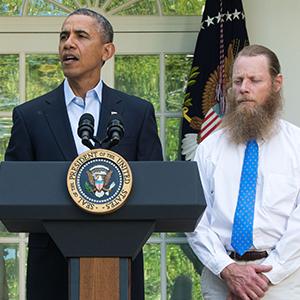In my review of The Caine Mutiny, I mentioned that the happy-go-lucky protagonist, Willie, eventually becomes a captain, and apparently a good one, too:
Even at anchor, on an idle, forgotten old ship, Willie experienced the strange sensations of the first days of a new captain: a shrinking of his personal identity, and a stretching out of his nerve ends to all the spaces and machinery of his ship. He developed the apprehensive listening ears of a young mother; the ears listened in on his sleep; he never quite slept, not the way he had before. He had the sense of having been reduced from an individual to a sort of brain of a composite animal, the crew and ship combined.
Achieving this sort of “feel” for an organization is of course far simpler when the organization consists of a fairly small number of people, like the crew of a destroyer-minesweeper or a very-early-stage startup. But it is challenging even in these circumstances, and many leaders of modest-sized organizations never really accomplish “a stretching out of their nerve ends” to all aspects of the organization. When the organization is very large and complex–too many people to ever meet personally, many geographical locations, a range of activities beyond the detailed comprehension of any one human mind–achieving a true sense of what is going on is much harder–it is to a substantial extent a matter of creating effective organization structures, choosing the right subordinate leaders, and establishing measurement and incentive systems which tend toward encouraging useful behavior rather than useless or damaging behavior…in addition to personal attributes such as curiosity, realistic sense of life, and ability to learn and to listen.
Whether the organization be large or small, the leader is far more likely to achieve the kind of depth understanding that Wouk describes if he has a strong sense of personal responsibility and interest in the organization, its people, and its mission. I’m reminded of some thoughts expressed by General William Slim, who commanded British and allied forces in Burma during WWII, following his defeat by the Japanese:
The only test of generalship is success, and I had succeeded in nothing that I had attempted…Defeat is bitter. Bitter to the common soldier, but trebly bitter to his general. The soldier may comfort himself with the thought that, whatever the result, he has done his duty faithfully and steadfastly, but the commander has failed in his duty if he has not won victory–for that is his duty. He has no other comparable to it. He will go over in his mind the events of the campaign. ‘Here,’ he will think, ‘I went wrong; here I took counsel of my fears when I should have been bold; there I should have waited to gather strength, not struck piecemeal; at such a moment I failed to grasp opportunity when it was presented to me.’ He will remember the soldiers whom he sent into the attack that failed and who did not come back. he will recall the look in the eyes of men who trusted him. ‘I have failed them,’ he will say to himself, ‘and failed my country!’ He will see himself for what he is–a defeated general. In a dark hour he will turn on himself and question the very foundations of his leadership and his manhood.
And then he must stop! For, if he is ever to command in battle again, he must shake off these regrets and stamp on them, as they claw at his will and his self-confidence. He must beat off these atacks he delivers against himself, and cast out the doubts born of failure. Forget them, and remember only the lessons to be learnt from defeat–they are more than from victory.
Read more
